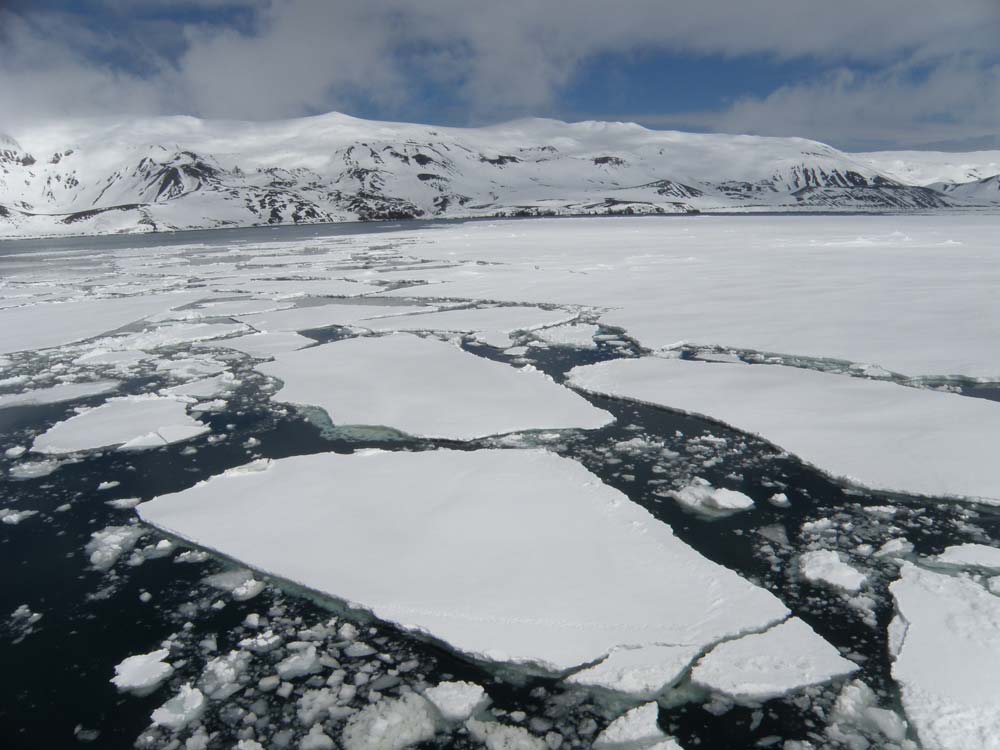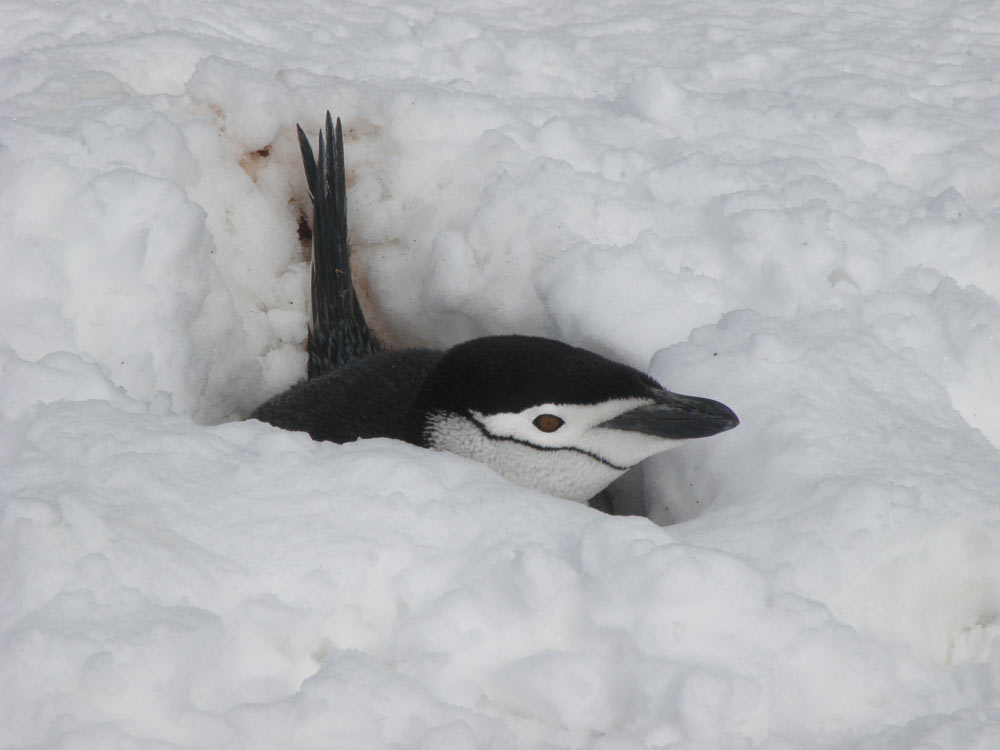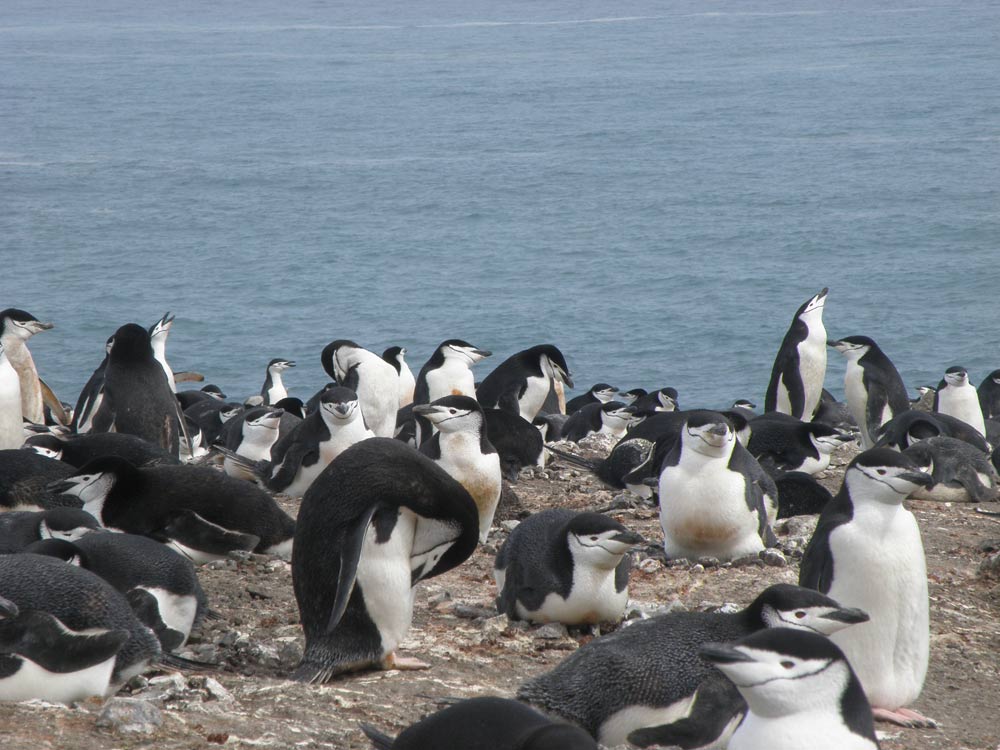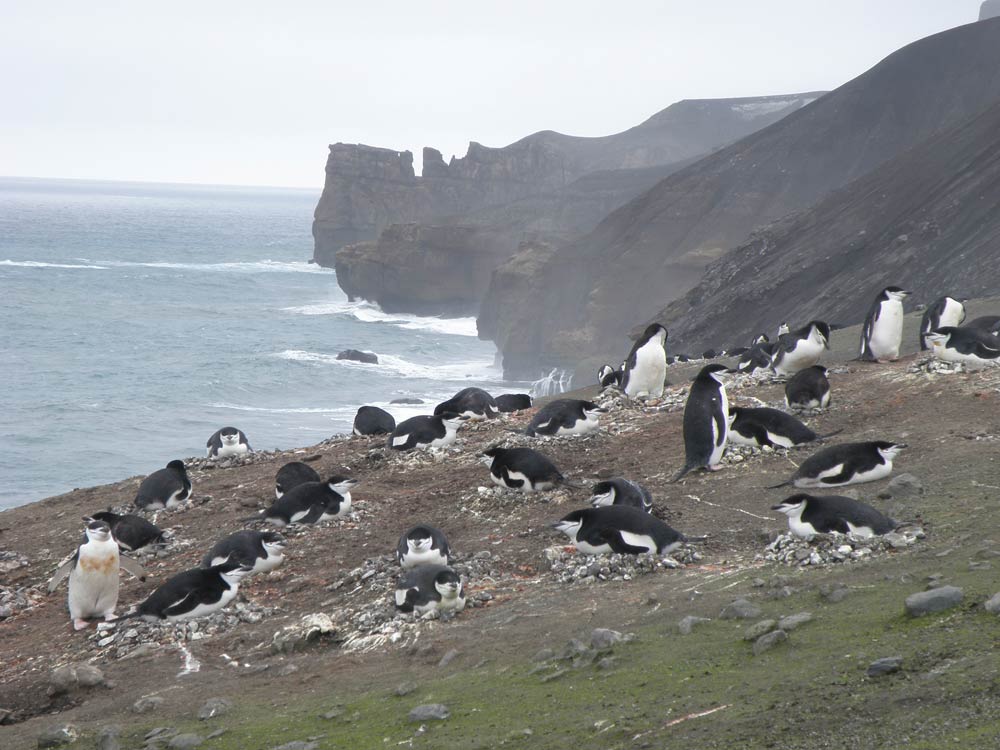Antarctic Album: Chinstrap Penguins of Deception Island
Sea Ice

Sea ice around the Antarctic's Deception Island. "Actually, in the 90's it was thought that the climate change would favor the chinstrap penguin, because this species prefers sea waters without ice unlike the Adelie penguin which prefers the ice pack," study researcher Andres Barbosa told LiveScience. The sea-ice decline in the winter, however, has become so big that it is now impacting krill populations, said Barbosa, of the National Museum of Natural Sciences in Madrid.
Icy Incubation

A chinstrap penguin nesting in the snow.
Saving Chinstraps

But Barbosa says the chinstraps aren't a lost cause. "This is an example of how the human activity far from the poles can affect the live at thousands of kilometers far from our homes," Barbosa told LiveScience. "Therefore, a more responsible use of the energy and the fossil fuels is necessary to preserve the planet and then the Antarctica."
Penguin Protection

In addition, he said, to protect the organisms that call the Antarctic home we need to reduce human impact by reducing overfishing, tourism and even research activity.
Get the world’s most fascinating discoveries delivered straight to your inbox.
Jeanna Bryner is managing editor of Scientific American. Previously she was editor in chief of Live Science and, prior to that, an editor at Scholastic's Science World magazine. Bryner has an English degree from Salisbury University, a master's degree in biogeochemistry and environmental sciences from the University of Maryland and a graduate science journalism degree from New York University. She has worked as a biologist in Florida, where she monitored wetlands and did field surveys for endangered species, including the gorgeous Florida Scrub Jay. She also received an ocean sciences journalism fellowship from the Woods Hole Oceanographic Institution. She is a firm believer that science is for everyone and that just about everything can be viewed through the lens of science.


